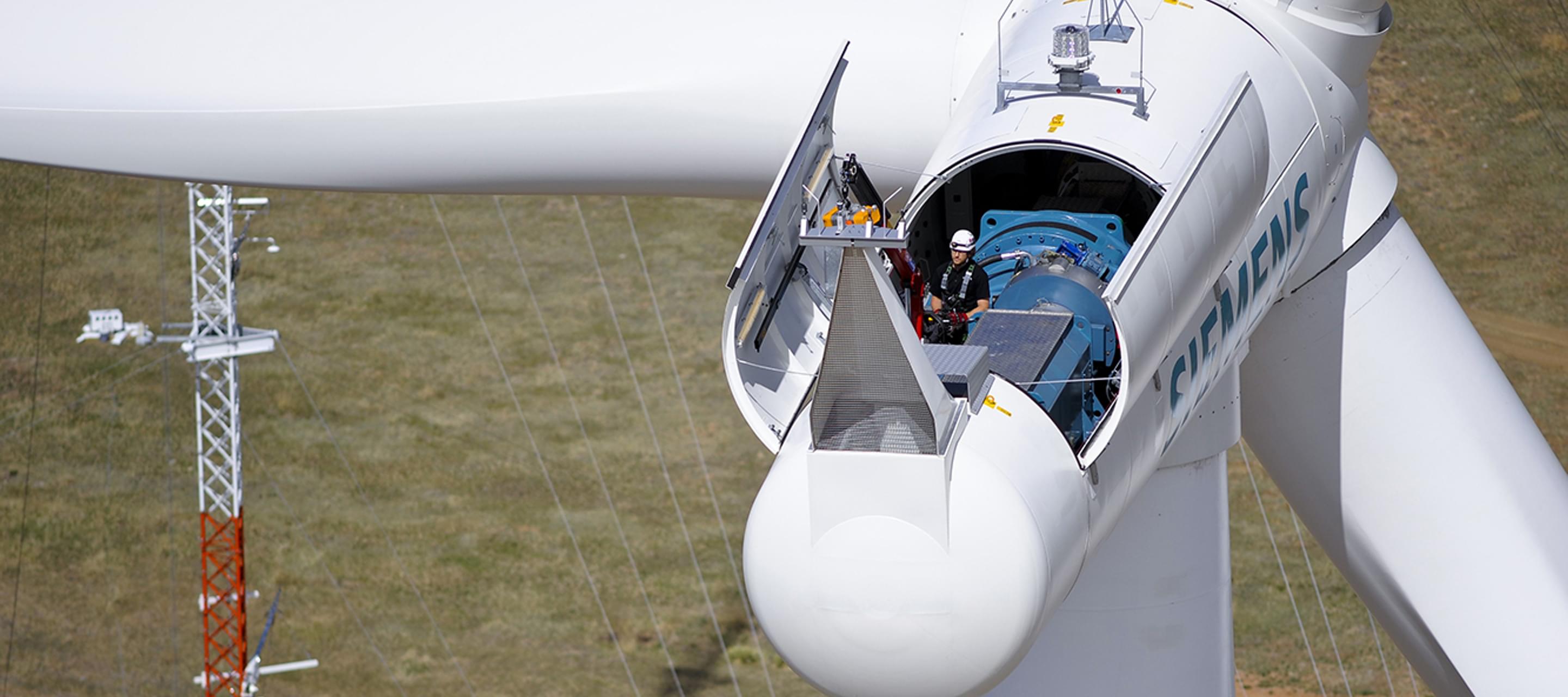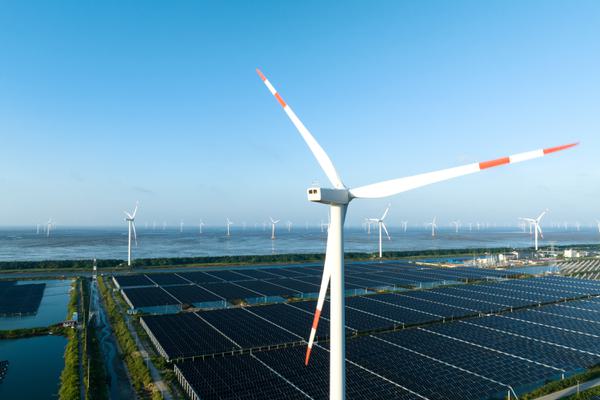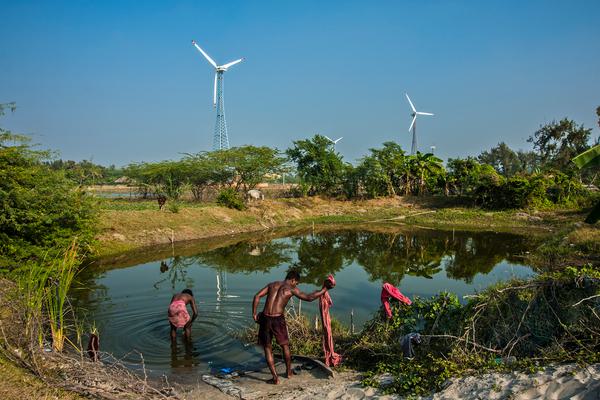Financing the Just Transition - Exploring the Human Rights Value Add

Join Mary Robinson, Rachel Kyte, Margot Wallstrom, Sharan Burrow and expert guests to discuss one of the biggest challenges of our time.
The world is committed to balancing its use of carbon and reaching "net zero" by 2050. By 2030, this requires reducing global emissions to 45% below 2010 levels. Central to these efforts are the transitions away from fossil fuel-based, carbon-intensive production and consumption towards the sustainable and green economies of a zero-carbon world.
These transitions will have a profound effect on many livelihoods and lifestyles. If societies are to accept this upheaval, they need to be fair, to be "just". That means the transitions need to respect the fundamental rights of all those potentially at risk - workers and communities, in particular the most vulnerable and marginalised.
This fundamental change will not happen organically. It requires political will, leadership, and clear policy and legal requirements, but perhaps the greatest challenge of all is paying for it. As we mark the 12-month countdown to the 2021 UN Climate Change conference (COP26), we must ask who will finance just transitions? How will the finance be leveraged? And if we are to scale beyond public sources, how will we ensure that such investments prevent adverse environmental and social impact while promising adequate financial return?
This Human Rights Day, 10th December 2020, IHRB will be joined by leaders from the worlds of politics, investment, trade unions, and civil society to help us understand some of the challenges ahead.
Thursday, 10th December 2020 | 75 minutes
Starting 10am ET | 3pm GMT | 11pm SGT
Opening remarks

Fireside chat

Panel Discussion

Closing Reflections & Moderation

Questions Submitted by Participants
IHRB received a number of excellent and wide-ranging questions for speakers in advance of the broadcast, as well as many more during the live discussion. We have shared those below to give a sense of the concerns that business, government, and civil society practitioners are grappling with in pursuit of just transitions.
Questions submitted during the live broadcast:
- To what extent does the panel believe that current engagement practices/resposible business change practices (when these exist and are put into practice) are not adequate or sufficient for a transition situation?
- A lot of people are depending on dividends to have a pension. However, dividends are usually paid out on short-term profits made. The commercial laws how profits (= dividends) are being calculated have to be rewritten.
- How can private sector due diligence of MNCs and TNCs in the absence of a binding BHR treaty? A BHR treaty is the panacea - but we see gross violations by such companies in countries with poor regulatory frameworks/poor enforcement unlike in their home countries.
- How do you manage the balance of perceptions and expectations of what is "just" between different interest groups - with the expectations to a speedy transition?
- Could Euro HRDD law requiring participation in transparent binding NGO/worker led multi-stakeholder initiatives MSIs help raise workers/community voices to cause faster change (as Bangladesh Accord did faster than we've seen on an issue in a country before)...?
- how do you see the role of pension funds?
- How can we best reconcile the difference in impact frameworks between the social and environmental if we are to truly embed and integrate into strategic decision-making, i.e. investments or otherwise?
- BlackRock just vowed to back more shareholder resolutions on climate & social issues. Yet few investors tackle human rights dimension of climate change & vice versa--BR no exception. How should BR address just transition in stewardship activities incl resolutions & voting? https://on.ft.com/3a54Wzv
- To change the financial system we need to change commercial laws; currently managers in many countries are, by law, forced to make a profit. Also, the way dividends are paid out. Are you talking to the influential law makers to influence them to rethink the status-quo?
- I´d like to hear your opinion on the advantages for businesses to install HR Due Diligence Processes especially duting a crisis like this.
- Do you see any risk that the COPs on biodiversity and climate are further postponed and/or moved online, and what are the up- and downsides to this - accessibility and participation of different stakeholders, negotiating difficult and sensitive issues etc?
- If we're talking about 'just' transitions, asymmetries in power relations will need to be addressed but how will this be carried out in practice - at the multilateral, regional, financial level etc?
- How does one make the Just Transition also "just" for the human rights of workers in the non-climate friendly economy?
- Is the concern with JT a western preoccupation? Yet China does not seem to be reshaping Belt and Road.
- Is the JT finance framework framed to influence China?
- How can we ensure that Countries respect human rights in the future they currently are not even wiling to allow those in the maritime sector to be able to get their contractual rights of freedom of movement now If we dont sort this out we can forget any progress in the future
- How can we adress just transition in the informal economy?
- Participant question submitted at registration: How do we go from the concept and theory of JT to a best practice on the ground?
- On linking action on climate with tackling inequality: what policy changes needed to ensure that burden of transition not borne by lower-and middle income groups? To what extent and how will this require a break with the laissez-faire economics of recent decades?
- Resistance is growing to abusive investment in renewables and transition mineral extraction. A fast transition must be fair. How an we insist finance drives not only co-benefit, but also greater co-ownership - to address inequality of wealth and inclusion and human rights?
- How do speakers see the role of trade unions? I work for a trade union and we are promoting the just transition as the way forward. Is our way towards decent work on a green planet
- Is profligate and non transparent borrowing harmful to Human Rights?
- How would you factor in access to knowledge and information. Aiming to make all stakeholders equally prepared to participate actively in the transitions and the policy process
- Thanks for this event. I wondered whether the IHRB, the Elders, and the WB would welcome the EC mandatory HR due diligence regime? and does the panel have any concerns over the fact that the new EC Biodiversity and human rights policy does not refer to Ecosystem Services?
Submitted at Registration:
- How can these principles and ideas help the US as it minimizes private health insurance industry?
- How can DFI meet the Paris agreement in financing the transition to green energy
- What new financial instruments can help small island states with just transition issues?
- we living in very unredictable wprld and right to life is at stake. how the nations are make accoun
- How do we go from the concept and theory of JT to a best practice on the ground?
- Should population be part of the climate agenda and how do we do it in a way that respects HR?
- How can we best harmonize the quantification of environmental and social impacts?
- For private investment, what is essential regulation to direct markets to deliver 'just' transition?
- How we can ensure to protect fundamental rights of groups and communities in India?
- Are the tools to analyse, incentivise & monitor HR risks and impacts sufficiently robust?
- What measures that Human Rights institutions can take to secure governments commitment (Net Zero)
- What role can civil society play in just transition and how do we navigate the tensions between?
- What will the IHRB have to do to address the perceived gap between human rights and business in the
- What is the role of National Human Rights Institutions in achieving a just transition?
- Based on the polluter pays principle establish a global CO2 emission tax to form a WB Climate Fund?
- Want to know the process of carbon reduction
- Article #1 of UDHR: all human beings are born free and equal in dignity and rights.
- Has any of you tackled the question of climate migration and human rights?
- What can be the African intervention, regarding its cultural, social and economic specificities ?
- Could participants share their views on the linkage between BHR, migration and climate change?
- What is the difference between business human rights & civil Hu-Rights? Where to gain such knowledge
- Please can you focus not so much on 'why' and generalities but on practical e.g. of change happening
- How do i submit a financial request to the green fund of paris agreement for american slave blacks.
- What did we learn re:Gilets Jaunes in France w regressive taxes on diesel hurt low income rural pop?
- How does just transition support business-community relations and the pursuit of sustainable invest?
- How is Human rights related to Business?
- Thoughts around human rights due diligence and just transition?
- Toolkit, best approach (to private sectors) for business & human rights disseminations
Image
Dennis Schroeder / Project Drawdown via Climate Visuals
A technician makes adjustments to a wind turbine at the National Wind Technology Center in Boulder, Colorado. This image selection was inspired by Project Drawdown®, which conducts ongoing research and analysis of climate solutions to help the world reach “Drawdown”— the future point in time when levels of greenhouse gases in the atmosphere stop climbing and start to steadily decline.



